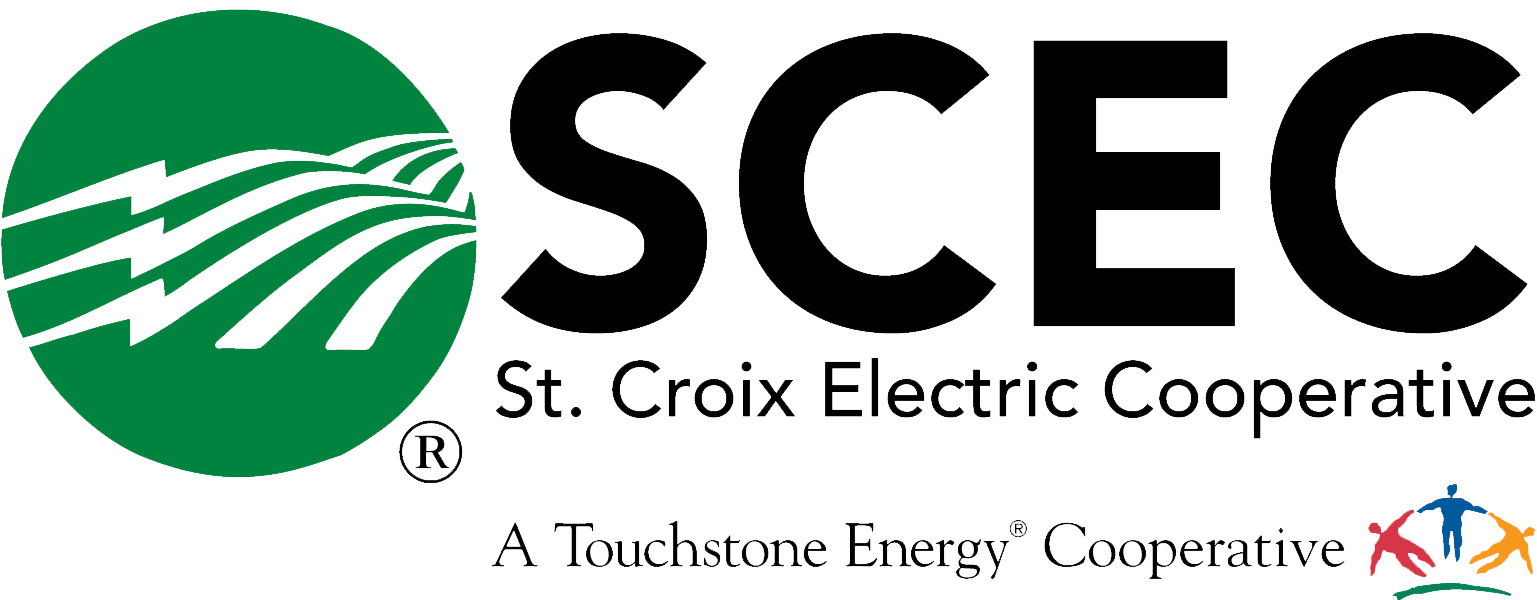
SCEC President/CEO
When negative turns out to be positive for your pocketbook!
Many of you saw a reduction in your last month’s bill due in part to your Capital Credit Refund being applied and ALL active members will see another “negative” line on their next bill due to a Power Cost Adjustment (PCA). SCEC is giving back to members approximately $350,000 as a PCA credit on Dec. 1 bills. The amount per kWh will depend on how many total kWh were used in November.
And based on current and forecasted energy supply costs being lower than previously predicted, stronger sales forecasted and reduced distribution expenses in 2020, there may also be a credit on January bills based on energy used in December.
The PCA typically reflects only the increase/decrease in the cost of power purchased from our wholesale provider, Dairyland Power Cooperative (DPC). It is a pass-through charge we pay to DPC for the electricity we buy from them to sell to you. The PCA can change each month and can be a charge or a credit on your bill. The changing PCA is to “true-up” with our members for the cost of the electricity we purchased or provided them.
A portion of the energy cost is already included in the base rate. When the cost of power is greater than the base rate the PCA is a charge. When the cost of power is less than the base rate the PCA is a credit. The last time we implemented a PCA was July 2019. That charge of .0073/kWh was applied to members’ bills through the end of the year, and the PCA was reset to zero in January 2020.
This year, due to COVID, we not only cut back on some expenses like travel, training and hiring, but we also unexpectedly saw sales come in stronger than forecasted. The combination of the wholesale power cost decrease, the distribution expense decrease and the sales increase has enabled us to provide some additional financial relief to our members via the PCA credit.
As the temperature falls, so does your electric rate!
Most St. Croix Electric Cooperative residential consumers will see a reduction in their bills dated November-April (October-March use) for several other reasons:
· A lower rate. Your Co-op’s winter rate is 9.8 cents per kilowatt-hour compared to 11.2 cents per kWh for electricity used May 1 through Sept. 30 (June through October bills). The wholesale cost of power purchased through Dairyland Power, our generation and transmission cooperative, is lower in these months.
· No sales tax. Electricity and natural gas sold for residential use during the months of November through April is nontaxable. (Effective Nov. 1, 1979) Sales tax is applied to electricity sold for residential use the other six months of the year and year-round for other use.
· Decreased usage. Cold winter temperatures increase demand for heat, but members have multiple sources for heat, including electric, natural gas, propane and wood stoves, whereas there is only one for air conditioning - electricity.
Back in 2003 when the average price of gasoline was just $1.83 per gallon the co-op put its split season summer/winter rates into effect in response to changes in the wholesale cost of purchased power.
Until the turn of the century almost all rural utilities in the upper Midwest had their peak demand for power in the winter months due to extensive use of electricity for home heating. In the late 1990s this began to change as more new homes were being built with central air conditioning systems. Soon the peak demand for power wasn’t happening in January, but rather in July. SCEC’s power supplier, Dairyland Power Cooperative, changed the rates they charged their member cooperatives to give them the summer peak price signal and encouraged their cooperatives to find ways to control or manage the summer peak demand.
As a result of the shift to a higher summer wholesale rate for power, the board approved the new seasonal energy rate for members, so the retail rates better reflected the actual cost of power, higher in the summer.
When the time is right …
All these adjustments coincide with our switch to one billing cycle. That means those of you who used to receive your bill mid-month with a due date the beginning of the month will receive a Dec. 1 bill with an “extra” two weeks usage on it. This bill will also be the bill where the above credit is applied based on your November usage. We hope this helps mitigate the impact this 6-week bill may have on your account.
Beginning with December, EVERYONE will receive their bill at the beginning of the month with a due date mid-month. Your due date appears on both your Bill Available Notification (if we have an email address on file for you) and on your bill itself – both the paper copy you may receive in the mail AND the .pdf you can view and download through SmartHub.
We respect and value that safe, reliable electricity and fair electric rates are important to our members. We will continue to work hard to be good stewards of your cooperative and earn your trust every day!
